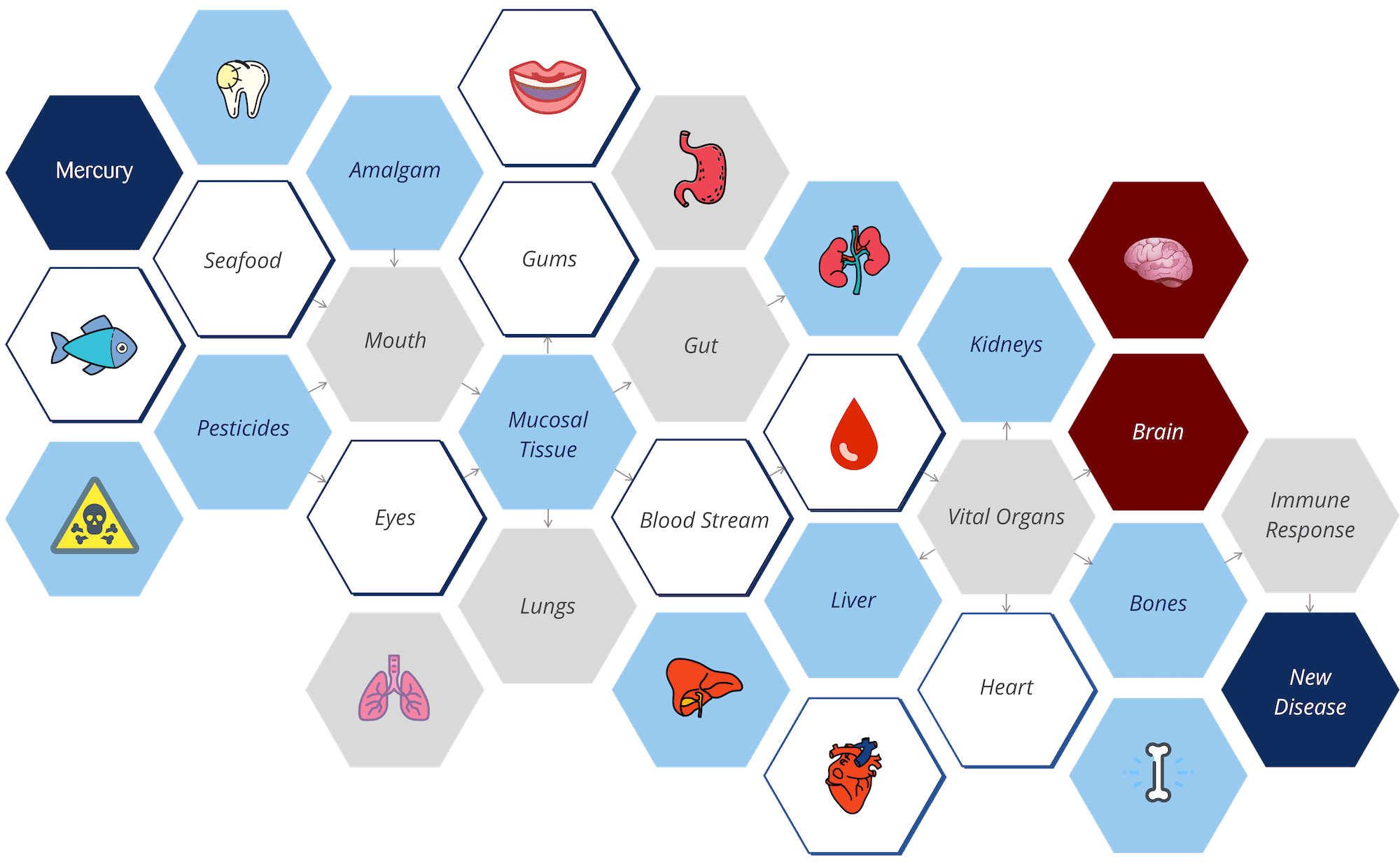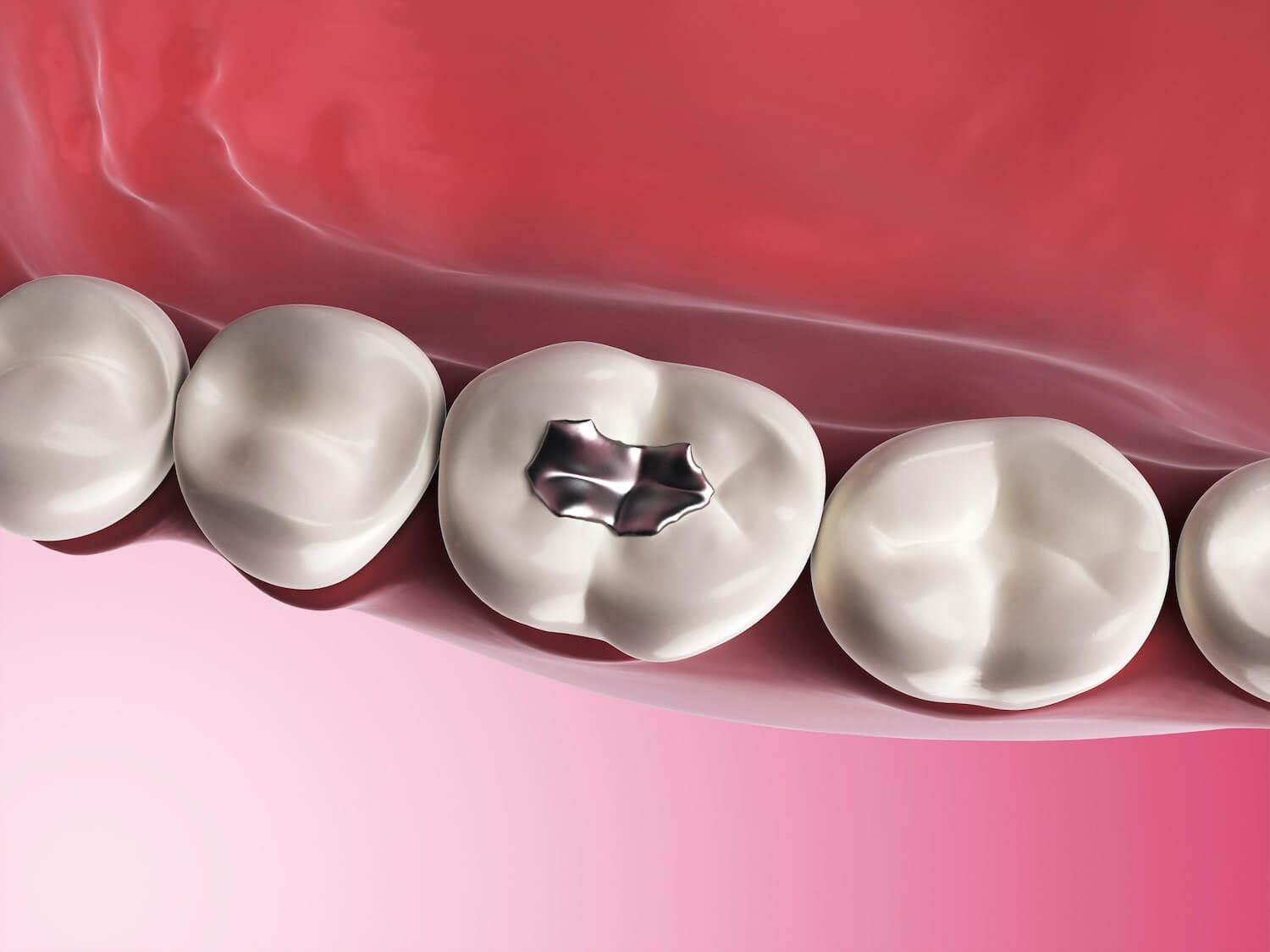How Mercury Causes Depression and Anxiety
Mercury is the third most toxic substance known to man (behind only arsenic and lead). Humans are most commonly
exposed to mercury in the form of amalgam fillings, which are made from a mixture of mercury, silver, copper and
tin. Each of these metals presents its own individual health challenges and symptoms; however, the most severe are typically associated
with mercury. The two most common symptoms of mercury toxicity are depression and anxiety.
How Does Mercury Cause Depression and Anxiety?
To understand how mercury can cause depression and anxiety, we must first understand how mercury behaves in the body after amalgam fillings are placed. The defining feature of mercury is that it can change from liquid to solid to vapour form. This is what happens when amalgam fillings are placed in the mouth. The fillings are placed as a liquid which then forms into a solid. Over time, however, friction from chewing and teeth grinding and drinking hot beverages erode the amalgam - emitting mercury in the form of vapour.
Once in vapour form, mercury is absorbed by mucosal tissue in the gums, lungs and gut. Once absorbed by the mucosal tissue, mercury enters the bloodstream. Once in the bloodstream, mercury travels to vital organs - one of which is the brain.

How Mercury Gets Stored in the Brain
Mercury is particularly dangerous because it is bioaccumulative - meaning it is stored in the body faster than it can be excreted. This is why so many people continue to suffer the symptoms of mercury toxicity long after amalgam removal. As discussed in our previous article on safe amalgam removal, a 1989 study on sheep and monkeys illustrates how mercury is stored in various parts of the body.
What Does Mercury do to the Brain?
As is true of many toxins, mercury leads to the overproduction of free radicals and depletion of antioxidants - culminating in ‘oxidative stress’. Oxidative stress occurs where an excess amount of free radicals relative to antioxidant capacity leads to uncontrolled oxidation that destroys cell components and destabilises healthy cell function. As is pointed out in this study, “the brain, with its high oxygen consumption and lipid-rich content, is highly susceptible to oxidative stress.”
In the case of mercury, oxidative stress affects the central nervous system and damages neurons in the brain. It also inhibits neurotransmitters like dopamine and serotonin. Research has observed that low dopamine and serotonin levels are common in those who suffer from depression and anxiety.
Additionally, mercury impairs mitochondrial function, resulting in lower energy and lethargy, compounding mental health disorders. Mercury also promotes inflammation, which inhibits the central nervous system and further perpetuates depression and anxiety.

Amalgam Fillings and the Side Effects of Amalgam Removal
Not all dentists remove amalgam fillings in the same way. In fact, many dentists lack the requisite knowledge to safely remove amalgam fillings and end up doing it the wrong way...

All About Heavy Metal Detox (by Nutrition Diagnostics)
Heavy metal detox is the process of excreting toxins from the body - thus reducing the number of free radicals in the body. While this sounds simple in theory, it is actually incredibly complex...
Alleviating Depression and Anxiety by Treating Mercury Toxicity
Conditions like depression and anxiety are not always the result of mercury toxicity. However, mercury plays a greater role in anxiety and depression than people realise. While treating depression and anxiety through the biomedical model of disease and prescribing therapy and medications may work well in alleviating the severity of symptoms, it will often fail to correct the underlying cause - especially in mercury toxicity.
If depression and anxiety are caused by mercury toxicity, conventional therapies and medications will, at best, only reduce the severity of symptoms. This is because therapies cannot combat the effects of oxidative stress on the brain and conventional medications are not designed to excrete mercury from the body. So long as the body is still burdened with mercury, depression and anxiety will likely persist.
Thus, it is better to take a holistic approach and ask ‘why the person is experiencing depression and anxiety. If they have or had have mercury amalgams, there’s every chance mercury toxicity plays a role in driving their depression and anxiety.
The Role of Holistic Dentistry
And herein lies the benefit of Total
Dental Revision.
By removing amalgam fillings and facilitating safe detoxification of mercury, we can work with patients to help
alleviate the symptoms of mercury toxicity, including depression and anxiety. To learn more about the safe removal of amalgam
fillings and how to overcome mercury toxicity, click
here.

